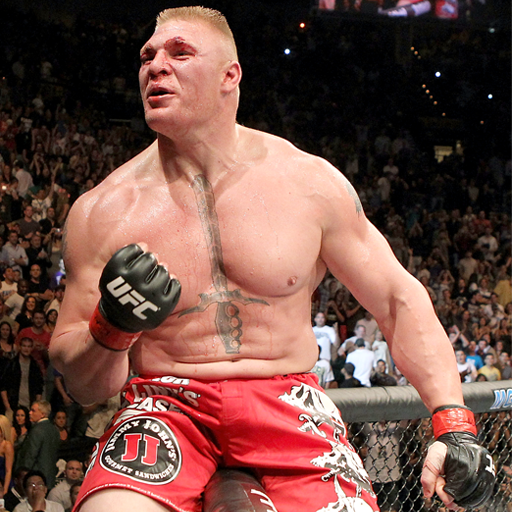Training in MMA is a rigorous process that requires immense dedication and physical endurance. Fighters must juggle multiple disciplines, including Muay Thai, boxing, wrestling, and Brazilian Jiu-Jitsu. Each martial art has its unique techniques and physical demands, making it challenging to master them all simultaneously. This commitment leads to long hours in the gym, frequent sparring sessions, and an ongoing quest for technique improvement. The intensity of this training can lead to overtraining and physical exhaustion, leaving fighters feeling inadequate as they struggle to keep up with the learning curve. It’s not uncommon for fighters to feel overwhelmed by the volume of information and skills they need to acquire. To effectively manage this demanding schedule, fighters must prioritize their training, often sacrificing personal time and social activities. Emphasizing proper recovery, nutrition, and mental health strategies can help mitigate the physical and emotional toll of such a rigorous training regimen. Additionally, fighters must learn to set realistic goals to maintain motivation and avoid burnout. Celebrating small victories, such as mastering a new technique or improving sparring performance, can help sustain enthusiasm and commitment. The journey in MMA is not just about physical prowess; it’s also about mental resilience and the ability to adapt and grow through challenges.
The Pain and Injury Factor
Injuries are an inevitable part of an MMA fighter’s journey. During training camps, it’s common to experience small aches and pains, ranging from sore muscles to tender joints. The physical toll of training can be discouraging, especially for newcomers who may not yet be accustomed to the rigors of the sport. Recovery becomes a crucial aspect of an athlete’s regimen, consuming at least 25% of their time. Fighters must navigate the fine line between pushing through injuries and risking long-term damage. This often requires a deep understanding of their bodies and recognizing when to rest versus when to train. Learning proper injury management, including rehabilitation exercises and physical therapy, can help fighters prolong their careers and enhance overall performance. Moreover, mental fortitude plays a significant role in how fighters deal with pain and injury. Developing a strong mindset can help them cope with setbacks and maintain their motivation despite physical challenges. Engaging in mindfulness practices or working with sports psychologists can provide valuable tools for managing stress and anxiety related to injuries and competition pressures. Understanding the reality of injuries and their implications on training and competition can prepare fighters for the ups and downs they will face in their careers.

Financial Struggles and Sacrifices
The financial landscape in MMA can be quite harsh. Many fighters invest significant money in medical clearances, training, and equipment, often with little return on investment. Entry-level fighters may earn a fraction of what they spend on their careers, leading to tough financial decisions. The reality is that most fighters cannot maintain full-time jobs due to the demanding training schedule, which forces them to make sacrifices in their personal lives. Despite these challenges, some fighters find ways to align their passion for fighting with other income opportunities, such as personal training or coaching. Building a personal brand through social media and engaging in community events can also create additional revenue streams. Networking within the industry can lead to sponsorships or endorsements, which can significantly alleviate financial burdens. Moreover, understanding the business side of MMA—such as contracts, sponsorship deals, and promotional opportunities—can empower fighters to make informed decisions regarding their careers. Fighters should consider seeking financial advice or mentorship from those who have navigated similar paths successfully. This proactive approach can help them manage their finances better and prepare for the unpredictable nature of earnings in the sport.
The Joy of Competition
Despite the hardships, many fighters find immense joy in the sport. Training provides a unique thrill that differs from the actual competition. The camaraderie built within the gym creates an exhilarating environment where fighters can develop lasting friendships and support systems. Many fighters describe a surreal feeling when they step into the ring, akin to self-discovery and personal growth. Embracing this joy is essential for those who wish to pursue a career in MMA. The adrenaline rush of competition can be addictive, pushing fighters to continually strive for improvement. Celebrating victories, whether big or small, helps maintain enthusiasm and passion for the sport. The joy of competition also extends beyond individual achievements. Many fighters find fulfillment in representing their team or community, creating a sense of belonging and purpose. Engaging in charitable events or community outreach can further enhance this sense of connection and purpose. Ultimately, focusing on the joy of training and competition can help fighters navigate the inevitable challenges they face in their careers, reminding them of the reasons they fell in love with the sport in the first place.
Personal Development and Confidence
MMA training offers significant benefits beyond physical fitness. As fighters progress, they often experience a surge in confidence and personal growth. The discipline required in training fosters patience and a strong work ethic, valuable traits in any endeavor. This newfound self-assurance translates to various aspects of life, improving social interactions and resilience. The journey of mastering martial arts teaches fighters to set goals, overcome obstacles, and embrace failures as part of the learning process. These experiences help shape their character and approach to challenges outside the ring. Many fighters credit their experiences in MMA for enhancing their mental toughness and ability to face life’s adversities with confidence. Incorporating mental training techniques, such as visualization and positive affirmations, can further enhance personal development. Fighters can benefit from setting personal goals that extend beyond the sport, creating a holistic approach to their growth. This focus on personal development not only enriches their lives but also strengthens their resolve in pursuing a career in MMA.
The Reality of Earnings
While some fighters achieve financial success, the majority struggle to make a living from fighting. Earnings can vary widely based on experience, promotion, and marketability. Entry-level fighters may earn between $10,000 to $12,000 per fight, while top fighters can command millions. However, many fighters supplement their income through sponsorships, endorsements, and performance bonuses. The financial disparity highlights the importance of passion over profit in pursuing a career in MMA. Fighters should be prepared for the reality that success may not come easily or quickly. Building a reputation within the sport requires time, dedication, and often, a bit of luck. Aspiring fighters should focus on developing their skills and gaining experience rather than solely chasing financial rewards. Investing in personal branding, engaging with fans, and leveraging social media can help create opportunities for sponsorships and endorsements. Understanding the economics of the sport can empower fighters to make informed decisions regarding their careers and financial futures.
The Importance of Amateur Experience
Starting as an amateur fighter can provide valuable insights into the sport. Amateur competitions often have structured environments with supportive referees and safety measures. This early experience helps fighters understand the dynamics of the sport without the pressure of professional earnings. Successful amateur fighters can build a following and secure sponsorships even before turning professional. The amateur circuit serves as a crucial stepping stone toward a successful career in MMA. It allows fighters to hone their skills, gain experience, and develop their unique fighting styles. Participating in amateur events can also help fighters learn about weight management, fight strategies, and mental preparation. These experiences prepare them for the transition to professional fighting, where the stakes are higher, and the competition is tougher. Building relationships within the amateur circuit can lead to future opportunities and connections in the professional arena. Aspiring fighters should embrace their amateur journey as a critical phase in their development, laying a solid foundation for their future careers in MMA.
Navigating the MMA Landscape
The landscape of MMA is fraught with challenges, particularly for those at lower levels. Fighters often encounter unprofessional promoters and unreliable opponents, making it difficult to gain traction. The path to recognition in major promotions like UFC or Bellator requires perseverance and skill. Building a reputation takes time, and fighters must embrace the grind to succeed. Understanding the industry’s intricacies can help aspiring fighters navigate their careers more effectively. Networking with other fighters, coaches, and industry professionals can provide valuable insights and open doors to new opportunities. Fighters should prioritize continuous learning and adaptability, staying informed about the evolving landscape of MMA. Developing a strong personal brand and establishing a presence on social media can also enhance visibility and attract potential sponsors or promoters. Ultimately, navigating the MMA landscape requires resilience and strategic planning. By leveraging resources and building connections, fighters can carve out their paths in this competitive and dynamic industry.
The Long-Term Perspective
Many fighters face the reality that a career in MMA may not be sustainable long-term. As they age and their bodies endure wear and tear, transitioning to alternative careers becomes necessary. While some fighters find success in commentary or coaching, others must seek traditional employment. The lessons learned in the octagon can provide valuable skills for future endeavors. Fighters often develop strong communication skills, discipline, and the ability to handle pressure—traits that are beneficial in various professions. Preparing for life after fighting is essential. Engaging in education or vocational training during their fighting careers can help fighters transition smoothly into new roles when the time comes. Additionally, building a strong support network can provide guidance and opportunities for post-fighting careers. Ultimately, passion for the sport can sustain fighters through the challenges, even when financial rewards are limited. Embracing a long-term perspective can help fighters navigate their journeys more effectively, ensuring they remain fulfilled and successful both in and out of the ring.
